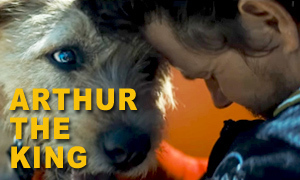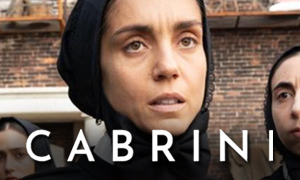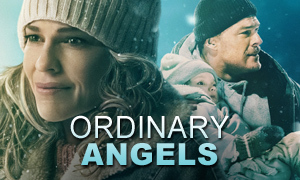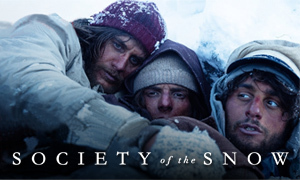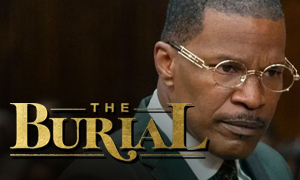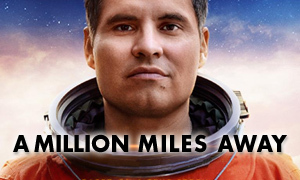The End of the Tour: History vs. Hollywood
| REEL FACE: | REAL FACE: |
Jason Segel
Born: January 18, 1980 Birthplace: Los Angeles, California, USA | David Foster Wallace
Born: February 21, 1962 Birthplace: Ithaca, New York, USA Death: September 12, 2008, Claremont, California, USA (suicide) |
Jesse Eisenberg
Born: October 5, 1983 Birthplace: New York City, New York, USA | David Lipsky
Born: July 20, 1965 Birthplace: New York City, New York, USA |
Why didn't David Lipsky's interview appear in Rolling Stone magazine?
In March of 1996, after Lipsky spent five days traveling on the Infinite Jest book tour in Illinois and Minnesota, he was preparing to begin writing his profile on David Foster Wallace. However, the profile never happened. "There had been some heroin troubles in Seattle," said Lipsky during a Center for Fiction speaking engagement, "and so I got reassigned to that story. ...and when I got back and finished the [heroin] story, it was about a month and a half afterwards and it was too late. So I never had to write the piece." As shown in the movie, it wasn't until after David Foster Wallace's suicide in 2008 that Lipsky revisited his recorded interviews with Wallace, which he published in 2010 under the title Although Of Course You End Up Becoming Yourself. -The Center for Fiction
Did David Foster Wallace's estate support the making of the movie?
No. In researching The End of the Tour true story, we discovered that the David Foster Wallace Literary Trust conveyed strong opposition to the movie, making it clear that they were never contacted, nor did they give permission to the filmmakers. Upon learning of the movie, they released the following statement, which reads:
"The David Foster Wallace Literary Trust, David's family, and David's longtime publisher Little, Brown and Company wish to make it clear that they have no connection with, and neither endorse nor support The End of the Tour. This motion picture is loosely based on transcripts from an interview David consented to eighteen years ago for a magazine article about the publication of his novel, Infinite Jest. That article was never published and David would never have agreed that those saved transcripts could later be repurposed as the basis of a movie. The Trust was given no advance notice that this production was underway and, in fact, first heard of it when it was publicly announced. For the avoidance of doubt, there is no circumstance under which the David Foster Wallace Literary Trust would have consented to the adaptation of this interview into a motion picture, and we do not consider it an homage." -LATimes.com
Did David Foster Wallace really live alone with his dogs in rural Illinois?
Yes, after he had written a significant amount of Infinite Jest, he bought his first house on the outskirts of Bloomington, Illinois and got his first dog, Jeeves, at the pound. Like we see in The End of the Tour movie, he was a bit unkempt but still highly intelligent and insightful. He painted his writing room black and filled it with vintage lamps (The New Yorker). Eventually, he did marry, tying the knot with artist Karen Green on December 27, 2004 (Rolling Stone).
How accurate are the conversations between David Lipsky and David Foster Wallace in the movie?
The End of the Tour true story reveals that the majority of the conversations in the movie between the author Wallace (Jason Segel) and the journalist Lipsky (Jesse Eisenberg) were taken almost verbatim from the real David Lipsky's taped conversations with Wallace. -SlashFilm.com
How exactly did David Foster Wallace die?
On September 12, 2008, David Foster Wallace's wife, artist Karen L. Green, returned to their Claremont, California home to find that Wallace had hung himself from a patio rafter. He left a two-page note and prepared part of the manuscript for The Pale King, the novel he had been working on but had not finished (Every Love Story is a Ghost Story). His father, James Wallace, said his son had suffered from depression for over twenty years and in June 2007, had stopped taking his primary medication after suffering severe side effects (The New York Times). When his depression returned, he underwent electro-convulsive therapy and even tried going back onto his old medication, phenelzine, but it had lost its effectiveness (Rolling Stone).
When did David Foster Wallace begin suffering from depression?
David Foster Wallace was first diagnosed with depression in the early 1980s when he was an undergraduate at Amherst College. Ever since that time, he had used medication to manage his symptoms (The New Yorker). "He had left for college and he came back his sophomore year in the middle of the year unexpectedly," said sister Amy Wallace during an interview with Electric Cereal. "This just stunned all of us. We had absolutely no idea what he was going through and what he was struggling with, and that was a very memorable and difficult time." Amy says that David had been "a very, very volatile and moody teenager," but he was "very, very secretive too." She believes that he had likely been having depression-related feelings in high school, especially in his senior year of high school, and the depression got much worse during college. -Electric Cereal
Did travelling with David Foster Wallace really have a profound impact on David Lipsky?
Yes. "Travelling with him was about as much fun as I've had travelling with anybody or ever talking to anybody," says the real David Lipsky. "He was just incredibly awake." -The Center for Fiction
Why did David Lipsky decide to turn his essays into a book after David Foster Wallace died?
"I wanted to think of a way to kind of remind people of what he was like when he was alive," says the real David Lipsky. Following Wallace's death, Lipsky received an email from Wallace's sister, Amy, who said she was being contacted by reporters and fans. She expressed her desire that her brother be remembered as a "real living person." Lipsky decided to write the book as basically a transcript of them talking because he wanted to honor Wallace's fear of having someone write about him and shape the conversation however they wished. The book, titled Although Of Course You End Up Becoming Yourself: A Road Trip with David Foster Wallace, became the basis for The End of the Tour movie. -The Center for Fiction
What is the novel Infinite Jest about?
At 1,079 pages, David Foster Wallace's novel Infinite Jest takes place in a near-future North American dystopia where the United States, Mexico, and Canada form a giant superstate called the Organization of North American Nations (O.N.A.N.). The novel is not science fiction but rather falls into the realm of satire, humorously addressing various elements of American culture, including entertainment and addiction, which it suggests adversely affect our ability to think and connect with other people on a meaningful level. What does our indulgence in such pleasures say about who we are as human beings? The characters that bring these philosophical debates to life interact mainly within the novel's two primary locations, a tennis academy and a halfway-house, which turn out to be surprisingly similar.
David Foster Wallace Interviews & Related Videos
For more insight into The End of the Tour true story, watch two David Foster Wallace interviews, including a 1997 appearance on Charlie Rose and a candid interview on the German television station ZDF. Then view an interview with the real David Lipsky, portrayed by Jesse Eisenberg in The End of the Tour movie.
Link-to-Learn More:

